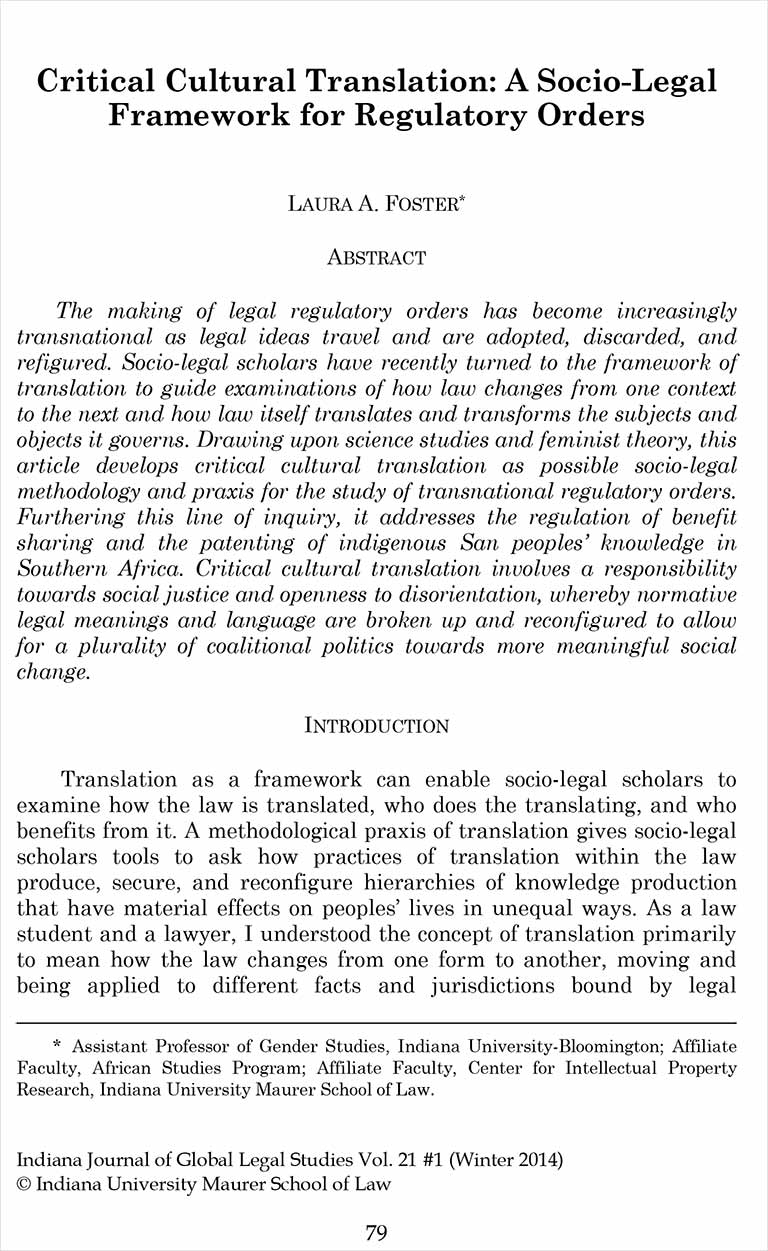The making of legal regulatory orders has become increasingly transnational as legal ideas travel and are adopted, discarded, and refigured. Socio-legal scholars have recently turned to the framework of translation to guide examinations of how law changes from one context to the next and how law itself translates and transforms the subjects and objects it governs. Drawing upon science studies and feminist theory, this article develops critical cultural translation as possible socio-legal methodology and praxis for the study of transnational regulatory orders. Furthering this line of inquiry, it addresses the regulation of benefit sharing and the patenting of indigenous San peoples’ knowledge in Southern Africa. Critical cultural translation involves a responsibility towards social justice and openness to disorientation, whereby normative legal meanings and language are broken up and reconfigured to allow for a plurality of coalitional politics towards more meaningful social change.
Critical Cultural Translation: A Socio-Legal Framework for Regulatory Orders [Article]
Critical Cultural Translation: A Socio-Legal Framework for Regulatory Orders [Article]
- Laura Foster
- Publication Date
2014
 The College of Arts
The College of Arts